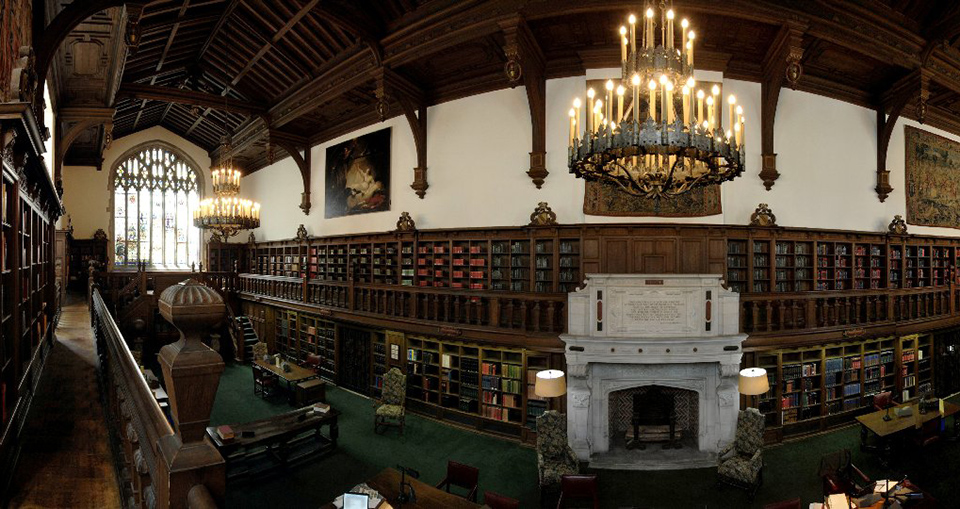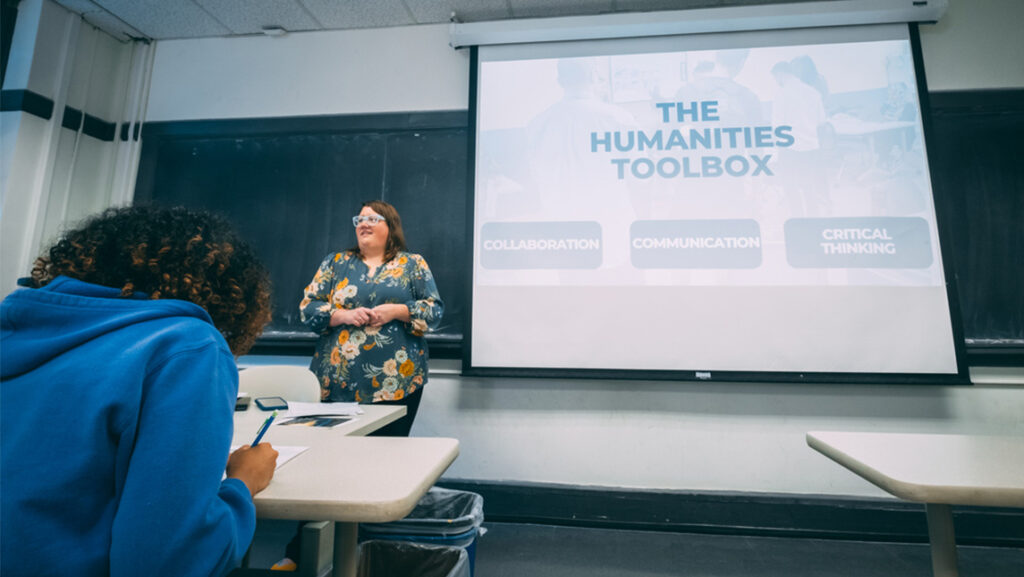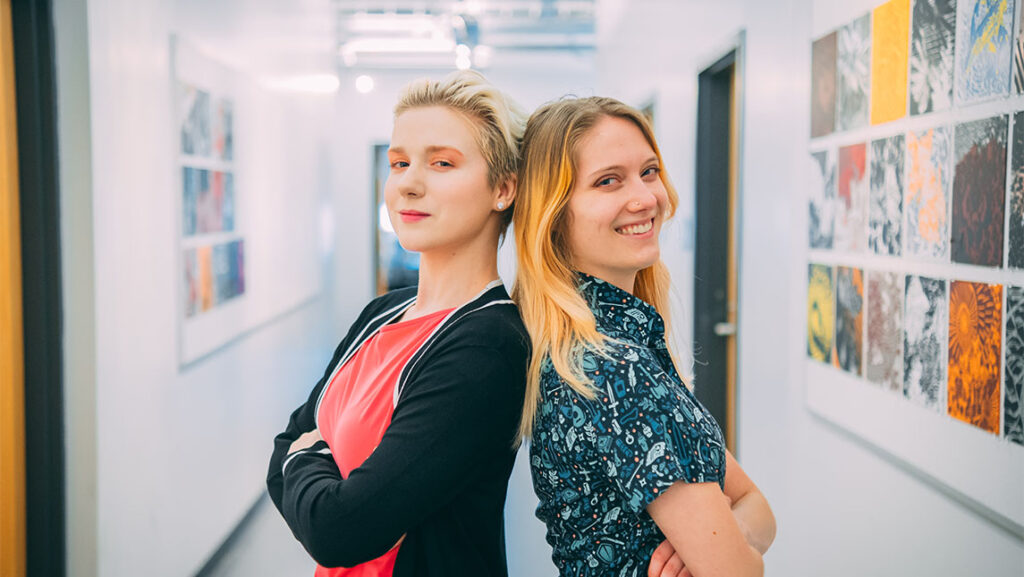What’s next door to the Library of Congress, kitty-corner from the Supreme Court, and two blocks from the Capitol Dome?
It’s the Folger Shakespeare Library, America’s great research Bard-O-Mecca, housing the world’s largest collection of Shakespeareana (including 82 “First Folios” of the Complete Works from 1623), plus half a million rare manuscripts, books, images, and artifacts ranging from the 13th to the 18th centuries—not to mention its own Renaissance-style theater.
This year is the 400th anniversary of Shakespeare’s death (April 23rd is his ‘deathday’ as well as his 452nd birthday). It’s already shaping up to be a great year for UNCG. As one of the newest members of the Folger Institute Consortium, UNCG has arrived on Capitol Hill with a splash, sending its best and brightest from across the disciplines to join in highly selective programs with professors and students from the likes of Harvard, Yale, Princeton, NYU, Chicago, and St. Andrews.

“Since joining the Folger Institute, UNCG has enjoyed a 63% acceptance rate—which translates to batting 630 in the big leagues,” says Christopher Hodgkins, Professor of Renaissance Literature, Director of UNCG’s Atlantic World Research Network, and Faculty Representative for UNCG on the Folger Institute’s Consortium Executive Committee.
Over the last five years, the university has sent a dozen UNCG faculty and graduate students to spend time digging deep into the Folger’s great resources. Hailing from departments such as History; English; Art; and Languages, Literatures, and Cultures, these UNCG “affiliates” (as eligible faculty and graduate students are called) have participated in programs ranging from weekend symposia to seven-day conferences to seminars meeting weekly for a semester or monthly for an entire year—with most travel and lodging expenses covered by Folger Grants-in-Aid.
“The Folger represents the Platonic Form of a research institution in the arts and humanities,” says Hodgkins. “It is founded on one of the world’s great archives, located at the heart of our capital city, staffed by brilliant and helpful staff, and it attracts many of the planet’s finest scholars, teachers, students, musicians and actors.”
For graduate students like Lauren Shook, Melle Elmes, and Neal Buck, Folger programs have provided an incomparable career launching pad.
“During my year-long 2013-2014 colloquium on the Renaissance idea of authorship,” says Shook, “I had the pleasure of learning under Harvard’s Barbara Lewalski, the renowned English Renaissance literary scholar. I was able to draft a dissertation chapter and have 13 other scholars (including Dr. Lewalski) read it, respond, and give me fruitful suggestions!”
For Elmes, her Spring 2015 Folger seminar on ecology and catastrophe put into her hands some unforgettable documents and artifacts.
“It is one thing to talk about the social effects of the plague; but it is quite another to examine county records of fatalities, written in a 16th century hand, and to see the names and numbers of the dead multiplying across the pages.
“One of the most moving artifacts we examined was a gold ‘poesy memorial’ ring made in 1692 to honor a sailor lost in a storm at sea; on the front, it featured a pebble, lying over a skeleton’s head, and inscribed within the band was the couplet: ‘The cruell seas, remember / took him in November.’”

Buck’s Fall 2015 symposium on the concept of literary periods introduced her to stars in her field. “I was able to meet some of my scholarly heroes, like Gordon Teskey, James Simpson, and Heather Dubrow. I was most inspired as it became clear early on that we were all struggling with the same questions, that scholars who had been in the field for thirty years were just as curious about our topic as I was.”
In addition to its unexcelled collections and its superb programming, the Folger offers other things less quantifiable but just as real: ambience and fellowship.
Says Kathleen Fowler, one of a dozen graduate students attending the Folger’s exclusive 2015-2016 Researching the Archives Dissertation Seminar, “examining those resources in the library’s beautifully atmospheric Tudor-style Reading Room has been a constant pleasure, as have the conversational afternoon teas.”
Shook elaborates, “Before the 3:30 session on Friday afternoons, many of us would meet for tea in the Folger’s Common Room; after our seminar, we continued discussions over a pint at the infamous Hawk & Dove on Pennsylvania Avenue.” And time bunking in the Folger Guest House next to the Library of Congress can keep the talk flowing late into the night.
Ancient tomes, tea, beer, boon companions—who could ask for anything more? Elmes puts it all in a larger perspective: “This was the first time that I have participated in the active production of new knowledge on such a level, and I felt keenly the responsibility of being a professional thinker and a public scholar. The Folger’s model of collegiality-cum-friendship has become a paradigm for the kind of generous scholarship that I choose for my future.”
Applications for Folger Institute programs are open to UNCG faculty and graduate students across the arts and humanities, including not only history, literature and languages, but also music, theatre, dance, the visual arts, as well as religion, philosophy, and political theory. For more information and links for application, go to http://www.uncg.edu/eng/awrn/folger_institute.html.
UNCG’s Folger Institute membership is supported by Terri Shelton, Vice Chancellor for Research and Economic Development, and Tim Johnston, Dean of the College of Arts and Sciences.



